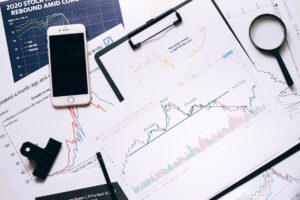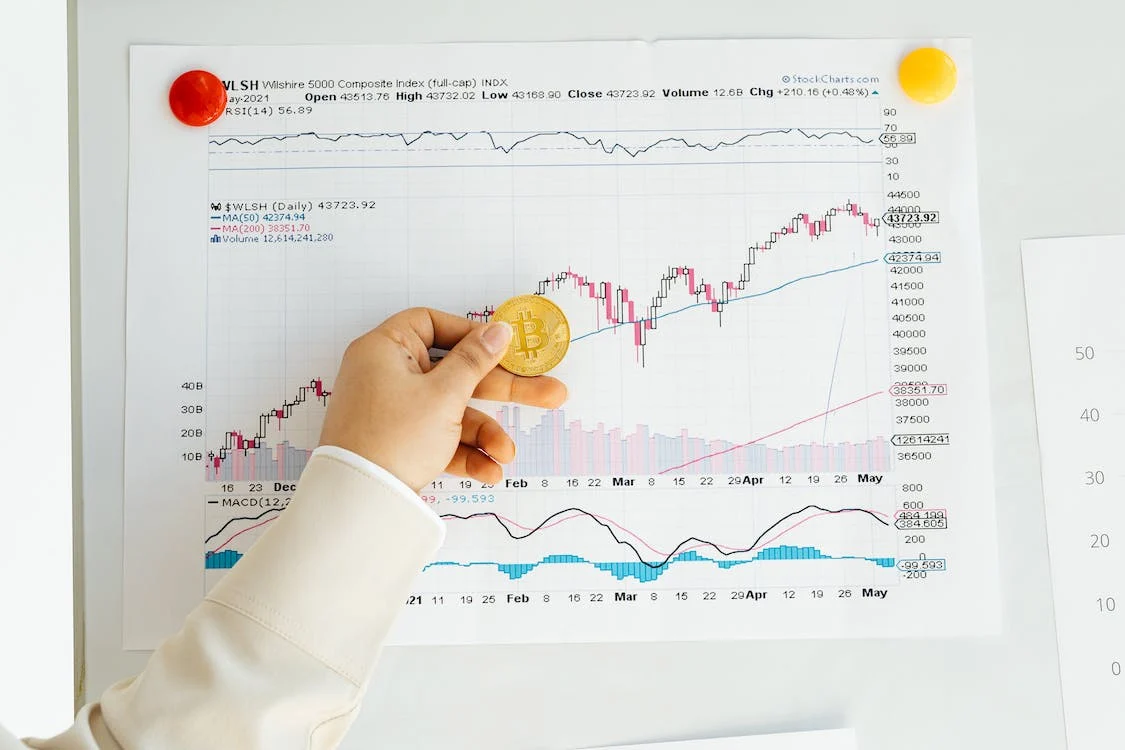Introduction
How To Avoid Insider Trading: Insider trading is the buying or selling of a security, such as a stock, bond, or commodity, by someone who has access to confidential information about the security that is not available to the public. Insider trading is illegal and is considered a form of fraud because it gives an unfair advantage to the insider who profits at the expense of other investors. However, insider trading can be prevented if companies take the necessary steps to ensure that confidential information is not shared with those who are not authorized to have it. This article will provide tips and best practices for preventing insider trading.
How to Avoid Insider Trading and Prevent Potential Insider Trading Risks
How To Avoid Insider Trading: Insider trading is illegal and can have severe consequences for individuals, businesses, and the market in general. As such, it is important to identify and prevent potential insider trading risks to ensure the integrity of the market and protect individuals and organizations from potential legal and financial repercussions.
To avoid insider trading risks, organizations should conduct regular risk assessments to identify potential vulnerabilities and take steps to mitigate them. This includes reviewing the organization’s policies and procedures to ensure they are up to date and adequately address insider trading. The organization should also ensure that there are adequate controls in place to monitor and prevent insider trading, such as monitoring employee trading and requiring pre-clearance of trades.
To prevent potential insider trading risks, organizations should educate their employees about the risks of insider trading. Also the potential consequences of engaging in such activity. Employees should be made aware of the organization’s policies and procedures regarding insider trading. They also need to be provided with training on how to identify and report any suspicious activity. Organizations should also ensure that there are adequate controls in place to monitor and prevent insider trading. Such as requiring pre-clearance of trades and independent review of trades.
Finally, organizations should take steps to ensure that the organization’s insider trading policies are enforced. This includes taking disciplinary action against those found to have engaged in insider trading and ensuring that the organization’s policies are updated regularly.
By taking the necessary steps to identify and prevent potential insider trading risks, organizations can protect themselves, their employees, and the market in general from potential legal and financial repercussions.
How to Establish an Insider Trading Policy and Compliance Program
An effective insider trading policy and compliance program are essential for any company that wants to protect itself from potential legal and financial repercussions. Insider trading is the practice of buying or selling a company’s securities based on material non-public information. It is illegal in the United States and can lead to severe penalties, including fines and jail time. To ensure that your company complies with the law, it is important to establish a comprehensive insider trading policy and compliance program.
The first step in establishing an insider trading policy is to identify all employees and other individuals who have access to material non-public information. This includes executive officers, directors, major shareholders, and other individuals who are in possession of confidential data. Once the individuals have been identified, they should be required to sign a written agreement that outlines the company’s policy and procedures for reporting any potential insider trading activities.

The next step is to create a detailed compliance program. It should outline the procedures for reporting any potential insider trading activities. This should include a procedure for identifying and addressing any suspicious trading activities. As well as a procedure for filing reports with the Securities and Exchange Commission (SEC). The compliance program should also provide a clear explanation of the consequences of violating the policy.
It is also important to provide ongoing training and education to all employees and other relevant individuals. This should include an overview of insider trading laws. As well as the company’s specific insider trading policy and compliance program. Employees should be encouraged to report any potential insider trading activities to the compliance officer or other designated individuals.
The Benefits of Regular Training and Education Regarding Insider Trading
Insider trading is a serious issue in the financial world. It is illegal to trade securities based on confidential information that has not been made available to the public. Insider trading can lead to significant losses and reputational damage. It is important to ensure that all staff and personnel working in the financial sector are educated. They are also trained on the principles and regulations of insider trading. Regular training and education on the subject can help in numerous ways.
First, it can educate individuals on the laws and regulations of insider trading. Understanding the legal requirements can help to prevent violations of the law. This is to ensure that employees are aware of the consequences of their actions. Additionally, regular training can ensure that staff members have a good understanding of the types of activities that constitute insider trading. And how to appropriately handle confidential information.
Second, regular training and education can help to create a culture of compliance within an organization. This can help ensure that employees are aware of the risks and penalties associated with insider trading. This is to understand the importance of acting ethically and responsibly. This can help foster a culture of integrity and trust, which can be beneficial for the reputation of the organization.
The Role of Technology and Automation in Preventing Insider Trading
Insider trading is a serious offense that can have serious consequences for corporations and individuals alike. While the laws and regulations governing insider trading have become more stringent in recent years. Technology and automation play a crucial role in preventing insider trading and ensuring compliance with these laws.
Technology has enabled companies to develop sophisticated systems that can detect suspicious trading activities. It is also to alert authorities of potential insider trading. These systems utilize powerful algorithms and artificial intelligence (AI) to detect anomalies in trading patterns that could indicate insider trading. For example, if a company insider buys or sells a significant amount of stock in a short period of time, the system can detect this activity and alert regulators. In addition, these systems can be used to track the trading activities of individuals. It detects any suspicious activity that could be related to insider trading.
Automation is also used to ensure that all insider trading activities are conducted in accordance with the laws and regulations. Companies use automated systems to monitor and track the trading activities of their employees. The system can detect any trades that are made in violation of the company’s insider trading policy and alert the relevant authorities. Furthermore, automated systems can be used to restrict or limit the types of trades that can be made by an individual. This can help to prevent employees from engaging in insider trading by limiting their ability to buy or sell certain stocks.

In conclusion, technology and automation are essential tools in preventing insider trading. By utilizing sophisticated algorithms and AI to detect irregular trading activities, as well as automated systems to monitor and track the trading activities of employees, companies can ensure that they are compliant with the laws and regulations governing insider trading.
The Impact of Insider Trading on Employee Morale and Company Reputation
Insider trading is a serious issue that can have a significant impact on employee morale and company reputation. Insider trading occurs when individuals have access to confidential information. Use that information to engage in trading activities that could produce a personal financial benefit. This type of activity is illegal. It can have serious consequences for the individuals involved, as well as the company they represent.
Insider trading can have a major impact on employee morale. Employees who are aware of insider trading taking place within their organization may feel betrayed and resentful. They may become disillusioned, believing that their hard work and dedication to the company are not being respected. This can lead to a decrease in productivity and a decrease in employee engagement. Employees may also feel less inclined to follow the company’s ethical and legal standards. They believe that the company does not take these issues seriously.
In order to protect its employees, customers, and reputation, it is essential for any company to have a strict policy on insider trading. Such a policy should include clear guidelines on what constitutes insider trading, and the consequences for engaging in such activities. Additionally, companies should provide regular training to employees on the topic of insider trading and its potential repercussions. By taking these steps, companies can ensure that their employees and customers feel safe and secure and that their reputation remains intact.
Conclusion
How To Avoid Insider Trading: Preventing insider trading is a critical issue for businesses and organizations of all sizes. By following best practices and implementing effective policies, companies can protect their confidential information and ensure fair trading practices. Additionally, companies should invest in training and education to raise awareness of insider trading and the penalties associated with it. By taking these steps, businesses can create a culture of compliance and ensure that everyone involved in the trading process understands and abides by the rules.
Frequently Asked Questions
1. What are the consequences of Insider Trading?
Insider trading is illegal and is subject to civil and criminal penalties, including possible jail time.
2. What are the best practices for preventing Insider Trading?
How To Avoid Insider Trading: The best practices for preventing insider trading include ensuring that all employees and directors are aware of and comply with the company’s insider trading policies, implementing a pre-clearance and post-trade monitoring system for transactions involving company securities, and establishing procedures for the prompt reporting of insider transactions.
3. How does a pre-clearance and post-trade monitoring system help to prevent Insider Trading?
A pre-clearance and post-trade monitoring system help to prevent insider trading by requiring that all transactions involving company securities are reviewed and approved by a designated compliance officer prior to being executed. The system also allows for the monitoring of transactions after they have been executed to ensure that they are in compliance with the company’s insider trading policies.
4. What other measures can be taken to prevent Insider Trading?
Other measures to prevent insider trading include requiring employees and directors to sign a certification confirming that they have read and understand the company’s insider trading policies, conducting regular training on the topic, and establishing a confidential hotline for employees and directors to report any suspicious activity.
5. What type of information should be included in an Insider Trading policy?
An insider trading policy should include a definition of what constitutes insider trading, the consequences of engaging in insider trading, and the procedures for pre-clearance and post-trade monitoring. It should also include provisions regarding confidential reporting of insider trading activities and penalties for violating the policy.


